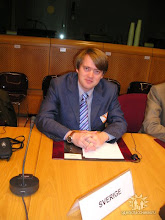Most of these principles have, in fact, been integrated in the final text of the Convention. Under Article I, the Contracting Parties confirmed that genocide, whether committed in time of peace or in time of war, would be regarded as a crime under international law which they would undertake to prevent and to punish. Article II described the crime of genocide – in a manner even more detailed than Dr. Lemkin had preliminarily been suggesting,[1] – and Article III laid down that, along with genocide, conspiracy to commit genocide, direct and public incitement to commit genocide, attempt to commit genocide, and complicity in genocide should be punishable. Article IV provided that persons committing genocide or any of the other acts enumerated in Article III should be punished, whether they are constitutionally responsible rulers, public officials or private individuals, and Article V required the Contracting Parties to enact, in accordance with their respective Constitutions, the necessary legislation to give effect to the provisions of the Convention, and, in particular, to provide effective penalties for persons guilty of genocide or any of the other acts enumerated in article III.
As far as the applicable criminal procedure was concerned, the Convention laid down that persons charged with genocide or any of the other acts enumerated in Article III should be tried by competent tribunals of the States in whose territories the acts in question were committed, or by such international penal tribunal as may have jurisdiction with respect to those Contracting Parties which shall have accepted its jurisdiction (Article VI); the latter aspect of the provision would be given ad hoc effect with the establishment of the International Criminal Tribunal for Rwanda in 1994, and a more permanent jurisdiction over the crime would be constituted under the 1998 Rome Statute of the International Criminal Court (Articles 5 and 6). In addition, Article VII laid down that genocide and the other acts enumerated in article III should not be considered as political crimes for the purpose of extradition.
According to testimonies of reporters who went looking for Dr. Lemkin after the adoption of the Convention by the United Nations General Assembly on 9 December 1948 to share in his triumph, they found him in a darkened assembly hall, weeping in solitude. Between 1948 and his untimely death, Dr. Lemkin delivered numerous public presentations, campaigning for the ratification of the Convention he had initiated. Dr. Lemkin died of a heart attack at the public relations office of Milton H. Blow in New York City on 28 August 1959. A sad twist of fate – the funeral of the "unofficial man" who had devoted his life to the remembrance of millions of victims of genocide was attended only by seven relatives and closest friends. It is our hope that more people would remember him fifty years after his death, with gratitude and recognition.
[1] Article II: "In the present Convention, genocide means any of the following acts committed with intent to destroy, in whole or in part, a national, ethnical, racial or religious group, as such:
(a) Killing members of the group;
(b) Causing serious bodily or mental harm to members of the group;
(c) Deliberately inflicting on the group conditions of life calculated to bring about its physical destruction in whole or in part;
(d) Imposing measures intended to prevent births within the group;
(e) Forcibly transferring children of the group to another group".
Subscribe to:
Post Comments (Atom)

Крайне мила сцена "Лемкин в зале после принятия Конвенции". Довести собственную мысль до статуса действующей нормы международного права - это удается единицам. Честь ему и хвала.
ReplyDeleteНо все-таки интересно было бы понаблюдать за развитием понятия "преступления против человечности", если бы Лемкин не придумал "геноцид" как отдельное преступление. К тому же, возможно, не будь такого звучного термина, и политики вокруг его употребления было бы меньше.